NEW YORK Chapter events, which took place in 2009
Saturday, December 12, 2009, at 5 PM
How Christians should prepare for ChristmasWhat are we really waiting for?Lecture by Rev. Jan Czudek
Fr. Jan Czudek a priest of the diocese of Ostrava – Opava, Czech Republic. After eight years exacting work in Karviná and Bridlicná in JesenÃky bishop FrantiÅ¡ek Lobkowicz appointed him pastor for Czech people living in New York and in Washington, D.C. Saturday, December 5, at 6.30pmKotyza´s annual “Two Baritones”CHRISTMAS CONCERTStaring: VladimÃr Chmelo, Stanislav Kotyza Pianist: Juraj FilasAfter the concert a traditional venison dinner will be served. The space in the BBLA Gallery is limited. Please R.S.V.P. by e-mail to svu.newyork@hotmail.com
Jacket and tie preferred. Entry fee $ 25.
Thursday, November 12, 2009, at 7 pm
How Best To View Old Cities. A lecture by Dr. Edward Toran
Friday November 6, 2009, at 6 pm
Anti-Aging Prevention. A lecture by Dr. Jitka Horejsova
Friday, October 9, 2009 , at 7 PM
Entering The Mayan WorldWhile traveling through Guatemala up into the northern Yucatan Peninsula in Mexico and as far south as San Salvador Michael Veznik captured with his camera the beautiful landscape surrounded by majestic volcanos, picturesque crater-lakes and enigmatic Mayan ruins. Michael also focused his camera on the native people, many of whom are descendants of the once mighty Mayan civilization.
Friday, September 25, 2009 , at 8 PM
JAZZ CONCERT: LACO DECZI & CELULA NEW YORK
Sunday, September 13, 2009, at 3:00 PM – 6:00 PM
FROM POETRY INTO A SONG
(Poetry, music, vision and beyond)
Sunday afternoon with Carmela Tal Baron and poetic friends – guest singers: Margaret Humphreys and Daralyn Jay who joined Carmela Tal Baron in her newly released CD “Not A Crash Landingâ€.
Tuesday, September 8, 2009, at 7:30 PM
HAPPY 168th BIRTHDAY ANTONIN DVORAK!
Tuesday, September 1, 2009, at 7:30 PM
MIXED BAG: OPEN MIKE 8 / POETRY READING
Saturday, June 27, 2009, at 3 PM
Czech Presidency of the European Union
A lecture by Alice Marie Svobodova, Czech Consul
Tusday, June 9, 2009, at 8 PM
Mixed Bag – Poetry Reading
Sunday, June 7, 2009 , at 7:30 PM
THE ESCAPES OF JOSEF BRYKS
A documentary film by Jan Novak and Pavel Palecek
A story of a Czech patriot, RAF pilot, holder of Order of the British Empire, and a prisoner in a concentration camp and a communist jail.
Sunday, May 31, 2009, at 11:00 AM
Read more in English on the FIELD TRIP TO BROOKLYN!
Read more – Äesky
In the Steps of Charlotte Garrigue Masaryk and Flower Communion
Living history, singing and lunch
First Unitarian Church, Pierrepont Street and Monroe Place, Brooklyn Heights
Friday, May 29, 2009 , at 7PM
GREENWAYS in CENTRAL EUROPE
A special presentation by Czech Tourism and Friends of Czech Greenways about greenways program, greenways trails and responsible sustainable tourism in Central Europe. Presented were PragueVienna Greenways, Amber Trail, Moravian Wine Trails and Green Bicycle Greenway. www.PragueViennaGreenways.org
Saturday, April 25, 2009, at 3 pm
ANTI-AGING
A lecture by Jitka Horejsova, MD
How to keep body and mind sharp through exercise and nutrition.
Sunday, April 26, 2009 , at 7:30 pm
Terezin Diary
A film by Zuzana Justman
A documentary film by a survivor of the Theresienstadt Jewish Ghetto during the WWII set up by the Nazis. It was in fact a holding camp before the transposts to concentration camps. Many important Jewsih composers and cultural figures passed through before their cruel demise. Saturday, April 18 at 3PM
OTA ULC
A welll known Czech publicist and globetrotter read from his amusing travel books and shared his adventures from his numerous jurneys around the globe. In Czech.
Friday, April 17, 2009, at 7 pm
An Opening of Eugen Suchon Travelling Exhibition
Celebrating 100-year birth anniversary of this great Slovak composer.
In collaboration with Bohemian Benevolent & Literary Association, Consulate General of the Slovak Republic, Slovak American Cultural Center, New York
Tuesday, April 14, 2009, at 8 pm
Open Mike 5.
Poetry reading
Monday, March 30, 2009, at 7:30 PM
A TRIAL IN PRAGUE (2000, 83 min)
Screening of a documentary film by Zuzana Justman about the trial and its circumstances of the communist Rudolf Slansky in 1951.
Saturday, March 21, 2009, at 3 PM
HEALTH OF THE ROMANY MINORITY IN SLOVAKIA AND CENTRAL EUROPE [23]
A lecture by Prof. Vlado Simko, MD
Saturday, March 14, 2009, at 8 pm
Is Peace in the Middle East Possible?
A lecture by Consul General of the Czech Republic Eliska Zigova, PhD
Friday, March 13, 2009, at 8 pm
Open Mike 4 – Poetry Reading
Saturday, February 28, 2009, at 3 PM
The Holy Spies [Cernà a cernejÅ¡Ã]
A film directed by Jan Novak
Produced by Pavel Palecek
A shocking documentary about the systematic liquidation of the Roman-Catholic Church in the years 1945 – 1989 by means of agents of the Czechoslovakian State Security Service, who penetrated into the structure of the Church as clergymen at home and abroad: mainly in Vienna, Austria, and the Vatican.
Tuesday, February 17, 2009, at 8 PM
OPEN MIKE 3 – Poetry Reading
Saturday, February 14,2009, at 3 PM
HISTORY OF NUCLEAR MEDICINE
A lecture by Prof. Josef Machac, MDThe emergence of the medical specialty of Nuclear Medicine parallels the Modern Age, beginning with the nearly concurrent discovery of radioactivity and of X-rays at the turn of the 20th century. The discovery and use of radioisotopes revolutionized the practice of medicine as diagnostic and therapeutic tools. Dr. Machac’s excellent presentation and lecture – upbeat and with touch of humor,followed the exciting path of discovery leading to today’s methods of diagnostic medical imaging that we all take for granted, such as PET/CT or SPECT/CT. Since it happened to be Valentine’s Day, the heart was the frequent subject for demonstrations of imaging technology. It was a lecture that made science fun!Josef Machac, since 1992 a director of Nuclear Medicine at Mount Sinai Hospital in New York, is professor of radiology and medicine at the Mount Sinai School of Medicine of New York University. His work combines diagnostic imaging, research, teaching and clinical medicine in the Department of Radiology and the Cardiovascular Institute. He has authored or co-authored numerous scientific papers and books. He is also a history buff, an avid life-long beekeeper, and a beer and wine maker.
Sunday, February 1, 2009 , at 7:30pm
NOW WE ARE FREE
A documentary film by Zuzana Justman
Screening was followed by a lively discussion on situation of Czech women and their view of feminism.
Saturday, January 24, 2009 , at 3PM
THE CURRENT FINANCIAL CRISIS
A lecture by Prof. Andrew Mazzone
The crisis has provided an opening. Does it portend a German/Russian rapprochement, and a consequent new economic Drang nach Osten?
Andrew Mazzone teaches Economics at the Henry George School of Social Science. He was trained in neoclassical economics at Babson College and Marxist Political Economy at the New School of Social Research. Mr. Mazzone is a former CEO of the Perkin Elmer Corp., a fortune 500 company in the 1990’s, and is now a President of Xiom Corp., a public company active in plastic technology.
Tuesday, January 17, 2009, at 8 pm
Open Mike 2 / Poetry Reading
Sunday, January 11, 2009, at 7:30 pm
VOICES OF CHILDREN
A Film by Zuzana Justman
Saturday, January 10, 2009, at 3 pm
AMERICKE LISTY: the Past, Present, and Future
A talk by Peter Bisek, publisher
Americke Listy is a bi-weekly published in New York since 1964 for the Czech and Slovak community in the USA and distributed all over the world. Petr Bisek presented a brief overview of the Czech emigrant press in the USA and shared the story of how he and his wife Vera decided to continue in the work of the previous husband-wife team, the Svehlas, who published Americke Listy for 25 years since 1964. He talked about what it takes to publish an ethnic newspaper and raise a family at the same time. What are the sacrificies and satisfactions? What are the plans for future?

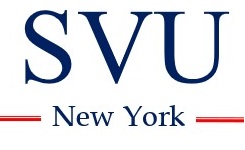
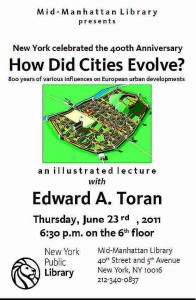
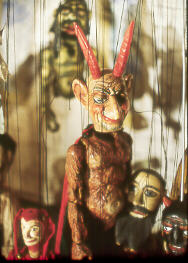 A Special Performance at
A Special Performance at 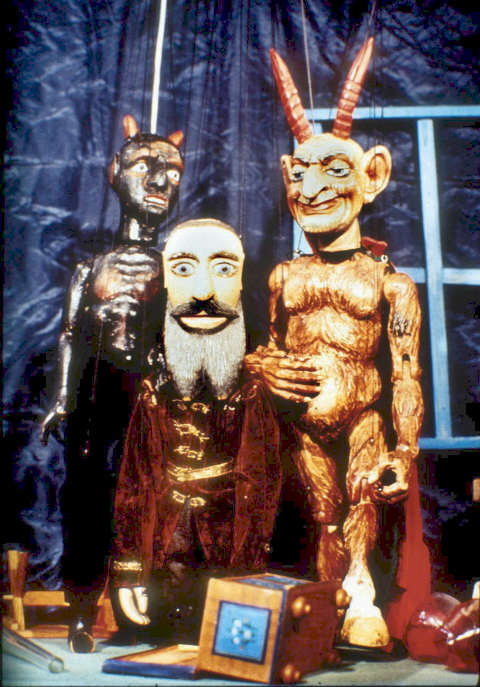
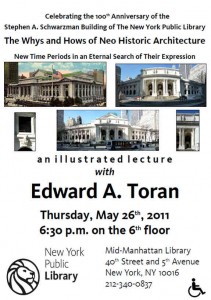
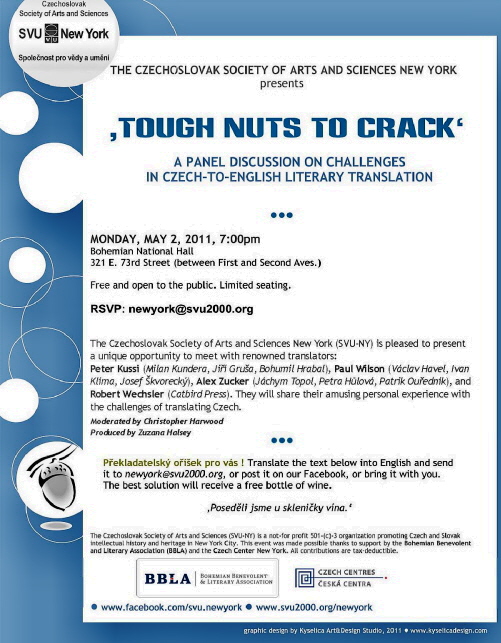
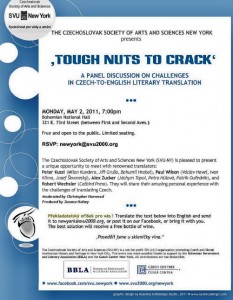

 “Being Jewish in Slovakia and Poland after the Second World War”
“Being Jewish in Slovakia and Poland after the Second World War” Thursday, March 24, at 7 pm
Thursday, March 24, at 7 pm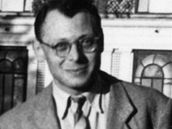 A slide show and readings by family and friends.
A slide show and readings by family and friends. “The Emergence of Slovak Jewish Identity in Interwar Czechoslovakia”
“The Emergence of Slovak Jewish Identity in Interwar Czechoslovakia”